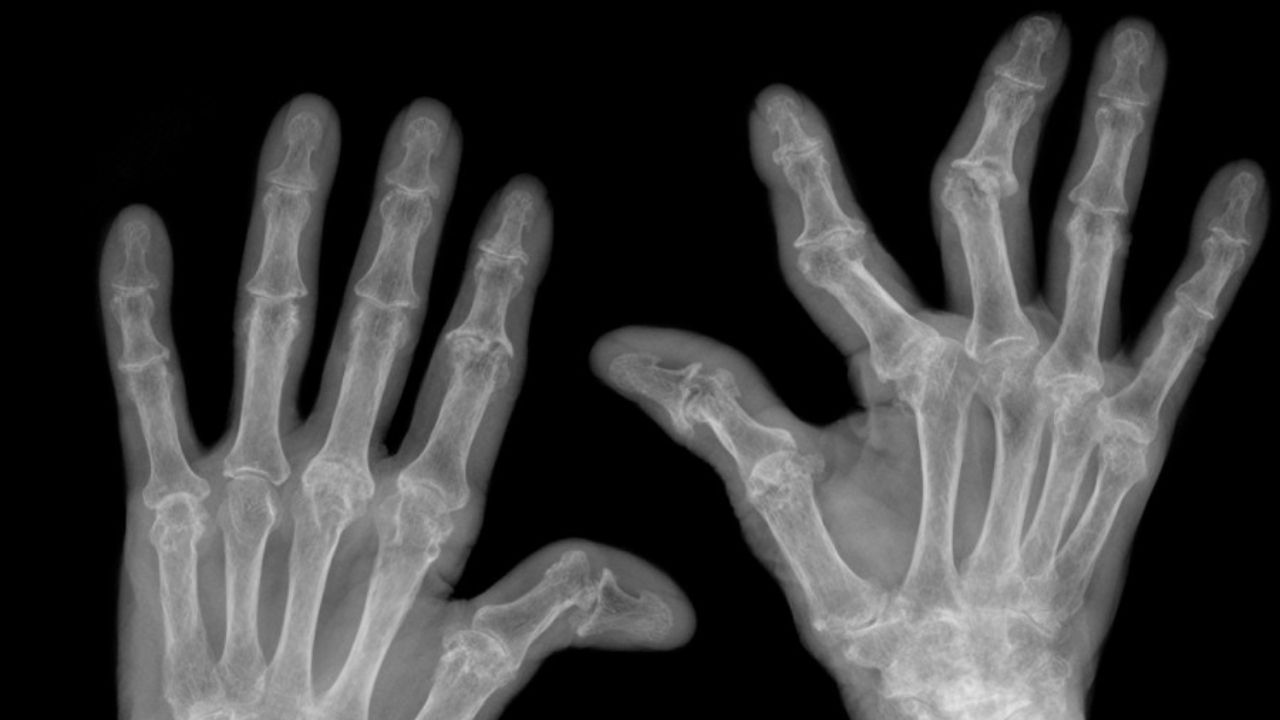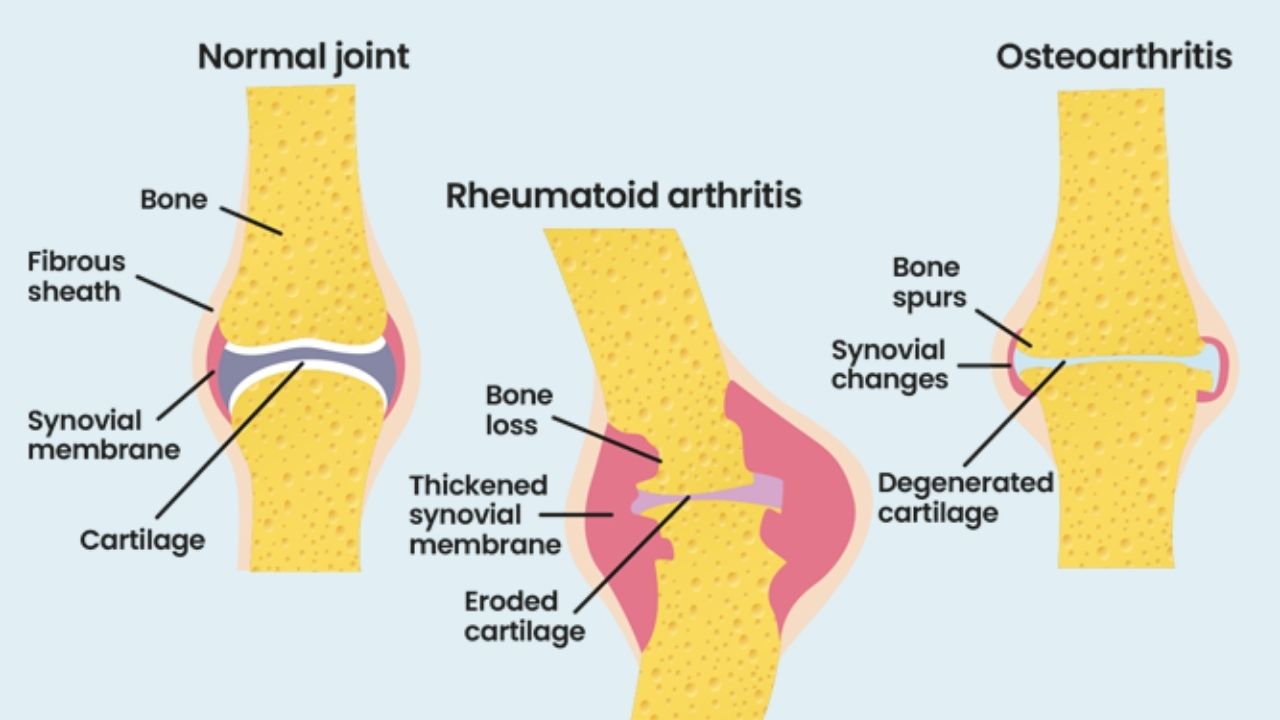Rheumatoid arthritis is a chronic inflammatory disease. In this article we will provide you all information about rheumatoid arthritis such as symptoms, causes, treatment and Is rheumatoid arthritis hereditary or genetic?

- in the first place, joint damage with rheumatoid arthritis – one or many joints can be involved in the process at once. Inflammation of the joints. Any joints can become inflamed: more often the small joints of the hands and feet, but also knee, elbow, hip, temporomandibular joints, intervertebral joints of the cervical spine and others.
- the process progresses with the development of irreversible changes in the joints, that is, most likely this disease will remain for life and the condition of the joints will gradually worsen. The rate of joint destruction is different for each patient.
- the disease rheumatoid arthritis periodically worsens under the influence of climatic conditions, hypothermia, trauma, psycho-emotional stress, physical activity, infections and concomitant diseases.
- During the course of the disease, damage to internal organs often occurs – blood vessels, nervous system, kidneys, heart, lungs. Then in the diagnosis appears the wording “rheumatoid arthritis with systemic manifestations.” Involvement of other organs also occurs in different ways and at different times from the onset of the disease. Various complications can occur at any stage of the disease, many of them are reversible with timely and adequate treatment.
Causes of rheumatoid arthritis
The causes of rheumatoid arthritis. The impetus for the development of this disease can be one of the following factors or a combination of them:
- genetic predisposition – as you know rheumatoid arthritis is hereditary: the risk of developing rheumatoid arthritis is increased by about 4 times in blood relatives of patients with rheumatoid arthritis. It is not the disease itself that is inherited, but the impaired response of the immune system to the action of infectious and other agents, during which arthritis develops.
- infectious agents – several infectious agents have been identified that can trigger the development of rheumatoid arthritis (rubella, herpes, Epstein- Barr viruses, retroviruses, cytomegalovirus, mycoplasma, etc.). However, none can be the only cause of the development of rheumatoid arthritis. They are only the starting mechanism of the pathological process.
- psycho-emotional stress and excessive physical activity – childbirth or abortion, trouble in the family or social sphere, the effect on the body of chemical, radiation, toxic factors – also provoke the development of rheumatoid arthritis.
Remember that Rheumatoid arthritis is hereditary problem
What are the symptoms of rheumatoid arthritis?
The main clinical manifestations of rheumatoid arthritis include:
- morning stiffness – a feeling of stiffness in the affected joints, requiring them to “work out” especially in the morning. With multiple lesions of the joints, this can lead, during an exacerbation, to complete immobility of the patient, usually increasing from the middle of the night and reaching its peak to awaken the patient in the morning. Often the severity of morning stiffness corresponds to the level of activity of the inflammatory process. But in a small number of patients, it may appear slightly.
- pain and deformity of the joints, swelling and limitation of the range of motion in the affected joints – are unstable and depend on the severity of inflammation and are especially disturbing during exercise. However, with the development of pronounced destruction of the joints and the formation of contractures, the limitations of movement are already permanent. A feature of rheumatoid arthritis is the symmetrical damage to the joints (for example, the small joints of both hands).
- temperature, weight loss, general weakness – can appear at the onset of the disease even before the development of typical changes in the joints and increase with exacerbation of the disease.
BASED ON THE DEVELOPMENT OF RHEUMATOID ARTHRITIS lies autoimmune inflammation, as a result of which the immune system, due to a violation of its functions, instead of “attacking” the enemies of the body (microbes, viruses, tumor cells), begins to “attack” its own cells.
An immune response is formed, leading to damage to one’s own tissues or organs. The cells of the immune system produce specific proteins – various antibodies against the human body’s own cells – auto antibodies.
Some of them are called rheumatoid factor (RF) and are regularly assessed in your blood when taking tests, not only when clarifying the diagnosis, but also during treatment.
The level of rheumatoid factor characterizes the activity of the disease and helps to assess the effectiveness of therapy. In rheumatoid arthritis, the tissues of the joints are primarily affected.
CHANGES IN THE JOINTS in rheumatoid arthritis are the result of several processes:

1. The chronic inflammatory process leads to a gradually increasing destruction of cartilage and bones. The main destruction of joint structures in rheumatoid arthritis is caused by pannus – an aggressive tissue that begins to grow under the influence of factors produced by the immune system in the joint cavity.
The mechanism of destruction is associated both with the mechanical pressure of the growing pannus, and with the formation of a large number of various aggressive enzymes that “eat away” the joint tissues. And in the adjacent bone tissue, the same processes cause rarefaction – “periarticular osteoporosis.”
2. Under the influence of a large number of different substances that are produced by the cells of the immune system and are formed as a result of the destruction of joint tissues, nearby soft tissues begin to change. There is a gradual muscle atrophy, contractures are formed.
All this leads to those external deformities of the joints, which are a characteristic feature of rheumatoid arthritis. In no other disease does the joints change so much. This is especially significant in the small joints of the hands and feet.